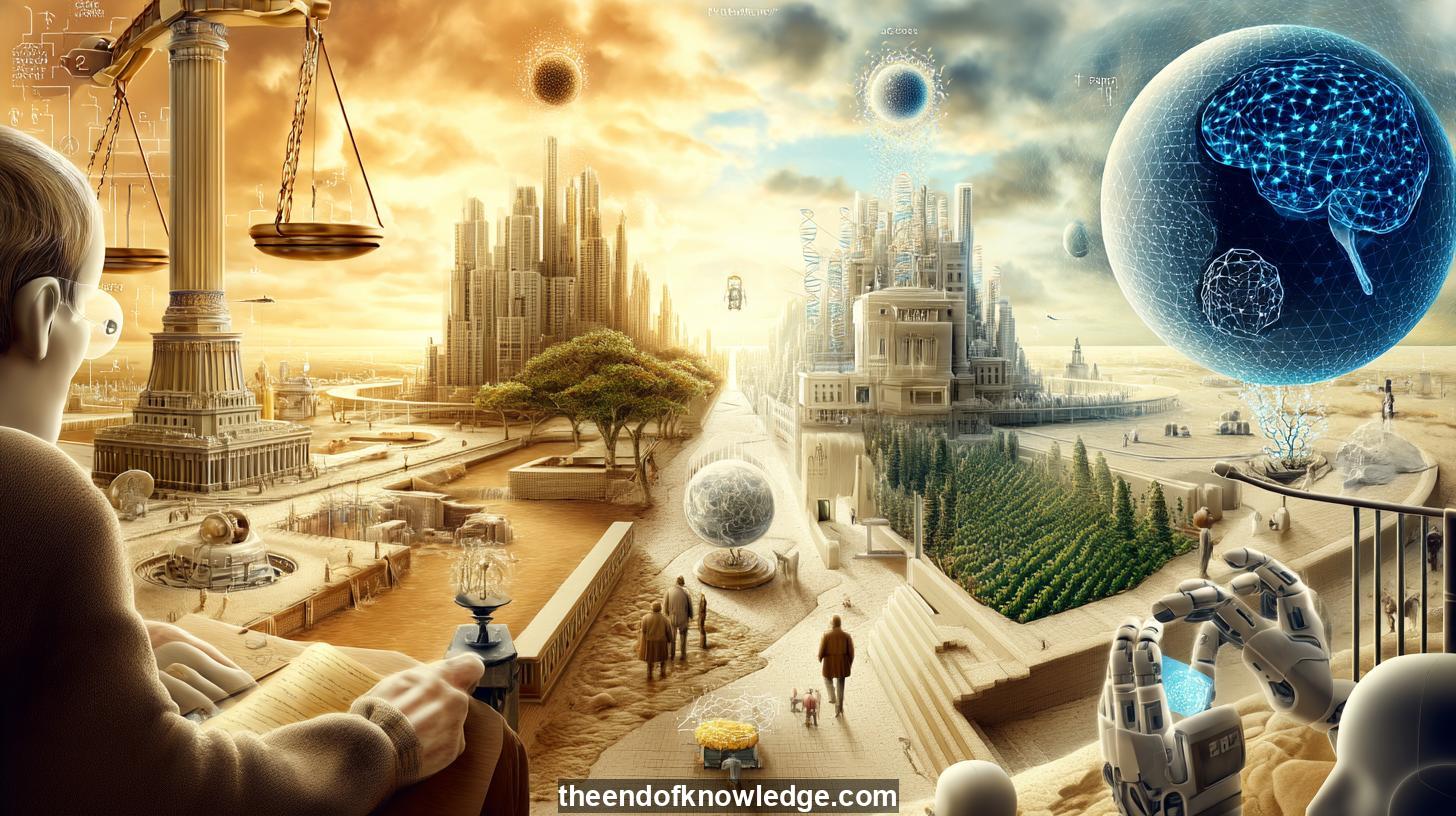 >
>
Concept Graph, Resume & KeyIdeas using DeepSeek R1 :
Resume:
The discussion revolves around the impact of AI on human evolution by 2035, regarding the Elon Unviersity report with the same title, featuring a panel of experts including 2 participats of the study David Vivancos and Mauro Rios, touching on themes like cognitive enhancement, ethical dilemmas, and societal transformations. Experts debate whether AI will augment human capabilities or diminish them, emphasizing the need for ethical frameworks and education to prepare future generations. The transcript also explores AI's role in creativity, employment, and the potential for new social structures, urging a shift from fear to proactive adaptation. The conclusion highlights the importance of responsible AI development to foster a better future.30 Key Ideas:
1.- AI may enhance human cognition but could also diminish critical thinking skills.
2.- Ethical concerns arise about AI's potential to manipulate emotions and decisions.
3.- Education systems need radical change to prepare for an AI-driven world.
4.- The future workforce may rely on AI for decision-making and problem-solving.
5.- Creativity might be redefined as AI generates art and content.
6.- AI could lead to significant job displacement, requiring new economic models.
7.- Humans might face a choice: remain biologically human or integrate technology.
8.- AI's role in warfare raises concerns about autonomous weapons and civilian casualties.
9.- Transparency and explainability of AI decisions are crucial for trust.
10.- Over-reliance on AI could lead to cognitive decline in humans.
11.- AI might revolutionize healthcare, offering personalized treatments.
12.- The concept of work could evolve, with AI handling routine tasks.
13.- AI could act as a moral guide, influencing ethical decision-making.
14.- Virtual identities and relationships with AI may become more common.
15.- AI could enable new forms of artistic expression and creativity.
16.- The digital divide might widen, exacerbating social inequalities.
17.- AI could serve as a tool for social good, aiding in global challenges.
18.- Emotional bonds with AI might replace some human interactions.
19.- AI could democratize access to education and knowledge worldwide.
20.- New forms of governance and regulation are needed for AI.
21.- AI might challenge traditional notions of consciousness and intelligence.
22.- The balance between human and AI roles in decision-making is critical.
23.- AI could enhance human longevity and quality of life.
24.- Ethical AI development requires diverse perspectives to avoid bias.
25.- AI could lead to a renaissance in traditional human skills and arts.
26.- The future of creativity might involve human-AI collaboration.
27.- AI could enable sustainable solutions for environmental challenges.
28.- Mental health might be impacted by increased reliance on AI.
29.- AI could serve as a catalyst for global unity and cooperation.
30.- The integration of AI into society demands a new social contract.
Interviews by Plácido Doménech Espí & Guests - Knowledge Vault built byDavid Vivancos 2025